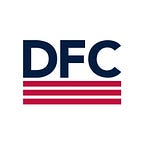Two development agencies deepen collaboration to expand impact
When the U.S. International Development Finance Corporation (DFC) was launched two years ago as a modernized development agency to address some of the world’s greatest challenges, it was designed to work closely with USAID missions around the world. While DFC is a small agency with staff based almost entirely in Washington, USAID has a network of missions in 80 countries that have a deep working knowledge of the greatest local challenges and the best ways to address them. DFC’s Mission Transaction Unit (MTU) is the transactional team within DFC’s Office of Development Credit that leads this collaboration, identifying local challenges and encouraging banks to support projects that will improve lives.
In the two years since DFC was launched, this collaboration with USAID has helped DFC extend its work into some of the world’s poorest countries with investments in smallholder farmers, women-owned businesses, and critical services like water, sanitation, and hygiene.
Here, Maryam Khosharay, MTU Deputy Vice President, and Michael Metzler, Executive Director of the Private Sector Engagement Hub at USAID’s Bureau for Development, Democracy, and Innovation, discuss the impact their teams have achieved.
How has MTU helped to broaden the scope of DFC’s work to advance some core agency priorities?
MK: MTU has a strong focus on expanding access to credit in low and lower-middle income countries. In fiscal year 2021 we closed 29 USAID-sponsored transactions with 18 USAID sponsoring operating units, totaling $380 million in DFC commitments. These USAID-sponsored transactions will mobilize up to $665 million in private investment in critical sectors within Nigeria, Tanzania, Rwanda, Kenya, Mozambique, Senegal, Niger, India, Indonesia, Pacific Islands, Cambodia, Moldova, Colombia, Brazil, Guatemala, El Salvador, and Honduras.
How does the support of a network of USAID missions help DFC carry out its development mandate?
MK: The DFC liaison network at USAID has been an integral source of the team’s success. There are currently 110 DFC liaisons, covering 94 Missions and Washington Operating Units. Having USAID’s in-country field presence has greatly helped determine where market gaps exist in order to enable impactful financing where it is most needed, with a focus on priority development sectors.
MTU builds on a long history of USAID expanding access to credit in the developing world. Can you explain why this is such a great need, particularly in low-income countries?
MM: The reason MTU is such an important resource to USAID is because it helps unlock local capital for local communities, many of which are low-income, marginalized and disconnected from the formal financial system. Empowering local communities to access their own financial markets in a market-driven and sustainable way through loans and guarantees is one of the most cost-effective ways to build local capacity and self-reliance.
How has the integration with DFC helped extend that work?
MM: The launch of the MTU within DFC created a clear transactional window through which USAID missions can continue to access the powerful tools to mobilize private capital within USAID programs. This provides USAID with a real unique opportunity to continue to grow its transactional programming through the use of a wider array of tools that allow for access to a more diverse and specialized community of private capital providers.
Can you speak about a specific MTU project that is having a significant positive impact?
MK: It is hard to narrow this to just one, but I will try! We recently committed a 50 percent loan portfolio guaranty with Mastercard and India’s HDFC Bank to expand lending to small and medium enterprises, especially women-owned businesses that need financing to maintain and grow their operations. Many of these businesses have suffered throughout the COVID-19 pandemic and this support will help them invest in digitization and recover from the economic impacts of the pandemic.
How have the two teams worked together and how has effective teamwork helped make MTU successful?
MK: I am incredibly proud of MTU for not only transitioning to a new agency and learning new policies and procedures necessary to execute transactions, but also for the team’s dedication to development, teamwork, and growth. We have strived to maintain team morale during a period of multiple transitions. Michael and I have worked together for almost a decade and it is exciting to continue our collaboration with the support of both agencies. We have regular engagement with the Missions and their leadership to ensure alignment and efficiency are in place and we are quick to find areas where we can grow and improve together. We hold webinars, trainings, and regular meetings to share learnings and developments. I am a strong believer that success comes from passion and there is no shortage of that on either side.
